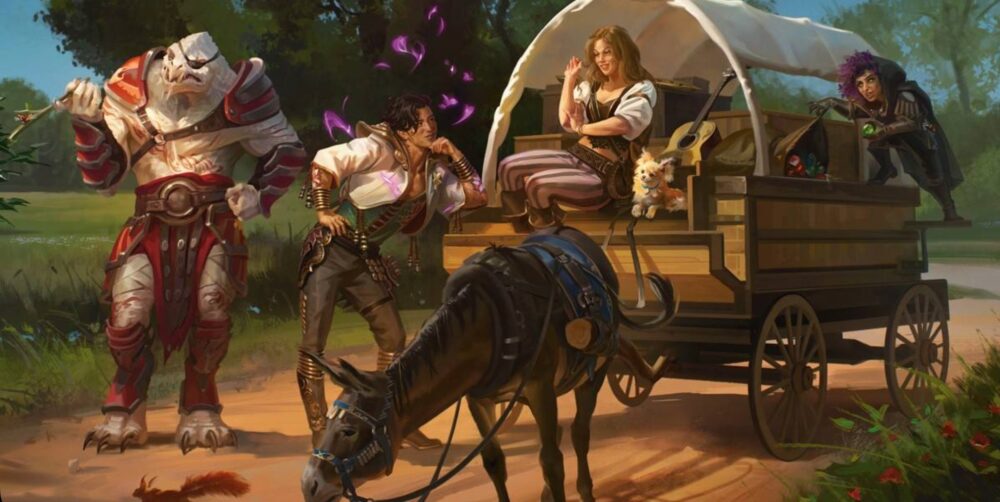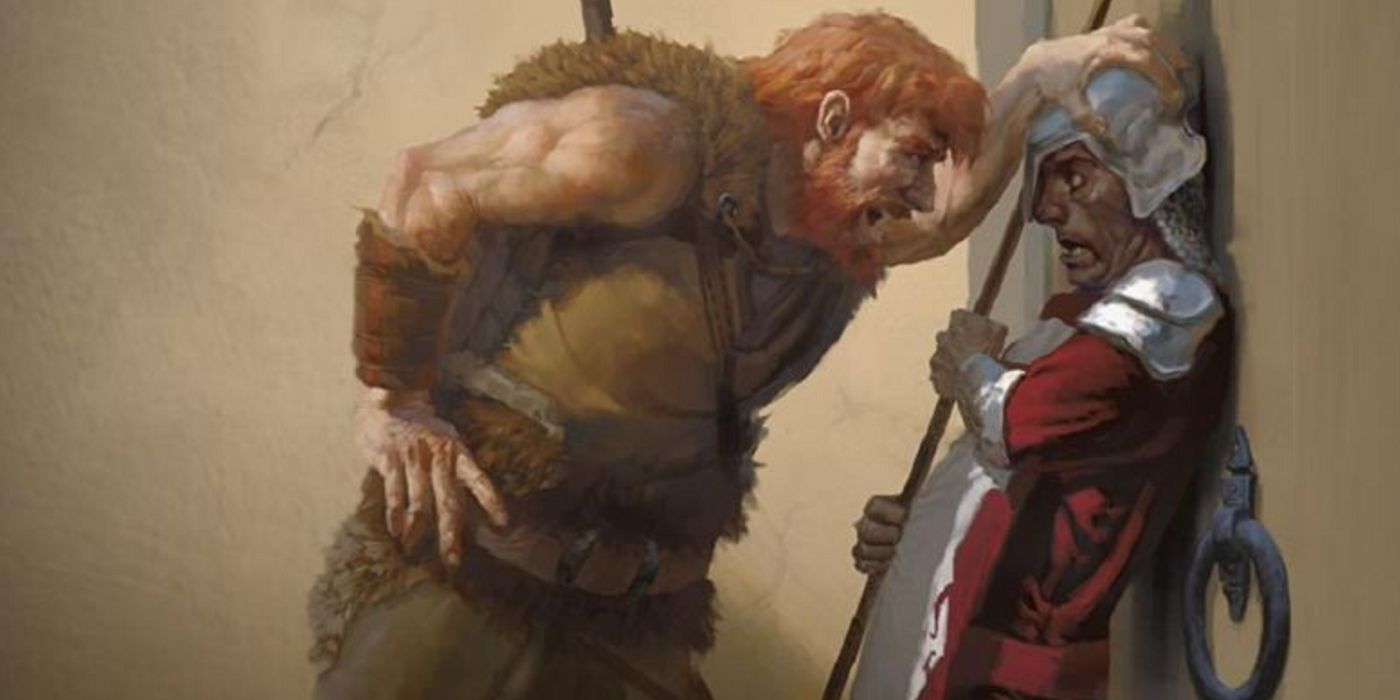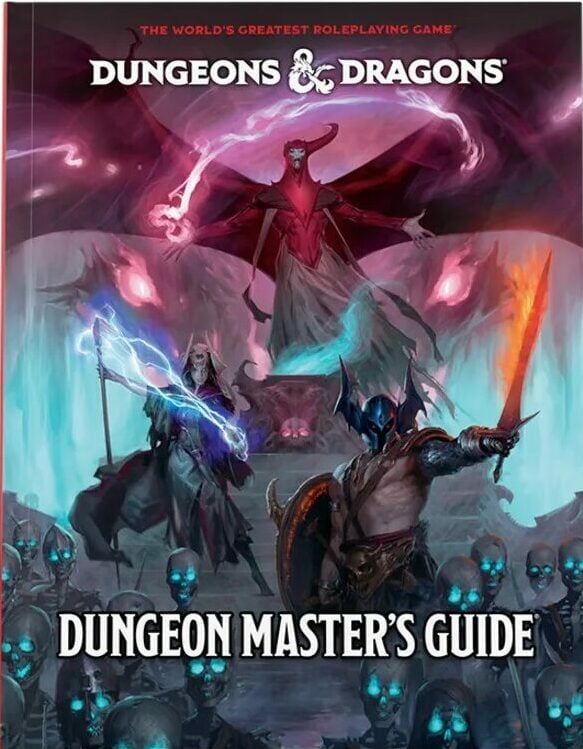D&D: New Socialization Rules Hammer Home ‘It’s Not Just Charisma Checks Anymore’
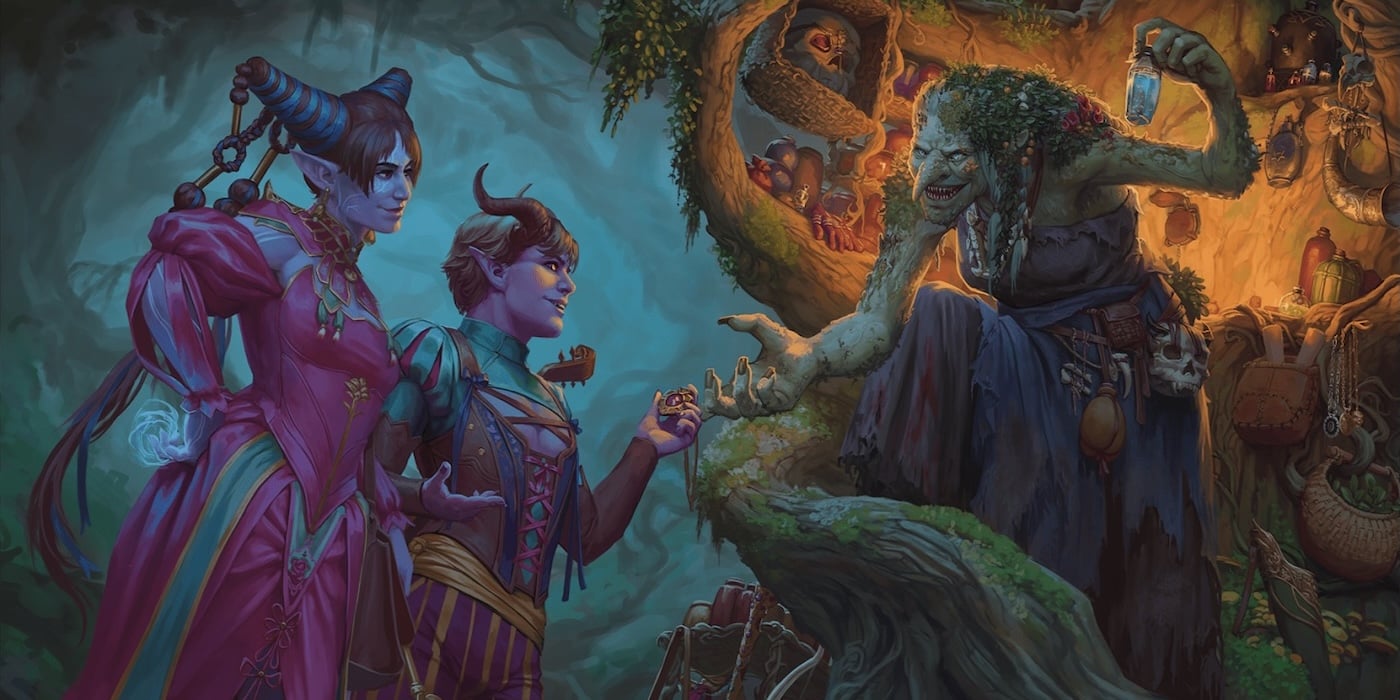

In D&D 5.5E, when you roll to seduce, you may very well end up rolling with Strength. Or Constitution. If your DM reads the DMG, that is.
Skill checks with alternate ability scores was an idea introduced in 5E, in the Dungeon Master’s Guide. Though, since nobody actually read that book cover to cover, it quickly took on “urban legend” status despite being included in the rules of the game.
Well, the new DMG makes it way more obvious, way sooner in the book, that nobody is locked into one flavor of ability checks per interaction. In other words, talking isn’t just for characters with high Charisma. At least, that’s the intention. Whether or not it actually changes is anyone’s guess. Only play will reveal the truth. But here’s a quick look at how D&D 5.5E’s socialization rules highlight using more than just Charisma.
In 5.5E You Can Roll To Seduce The Dragon With Intelligence. Maybe.
First, just to retread some of the new socialization rules introduced in the Player’s Handbook. There’s a lot more clarity on what you can and can’t do with skill checks now. Persuasion is no longer the “I rolled a 32, now I can do whatever I want” skill. Targets have to be willing to be convinced. It is perfectly fine for the DM to rule that the palace guard isn’t willing to let someone slip by them, no matter how good the excuse, and you’ll just have to deal.
But DMs are advised to do so sparingly. Because there are more social interaction rules. The new 5.5E Dungeon Master’s Guide has guidelines for running social interaction and going more than just rolling Charisma or Persuasion.
Creatures moods start off as Hostile, Indifferent, or Friendly. Players can take actions to try and change an attitude, either through specific skill checks or just doing things like buying an NPC a drink. Per the DMG, “you (the DM) decide the extent to which ability checks shape the outcome of a social interaction.”
You also decide what ability checks are made. The DMG suggests using other ability scores in a section titled, fittingly enough, “Use Other Ability Scores.”
Take A Look, It’s In A Book – Specifically, The Dungeon Master’s Guide
This section details running social interactions and giving characters who aren’t focused on Charisma a chance to shine. The DMG suggests using other ability scores to accomplish what Charisma might do. How, you ask? Well, let’s look at some examples taken straight from the book:
- Strength – An NPC won’t talk t the characters until one of them agrees to an arm-wrestling match. Or a strong character needs to bodily prevent the NPC from running away.
- Dexterity – An NPC is Hostile toward intruders, so the characters must talk from hiding. Or the social interaction provides a distraction that allows a character to get close enough to the NPC to steal something from the NPC’s pockets.
- Intelligence – An NPC’s speech is so full of obscure references to a particular area of knowledge that the characters can’t use thei nformation they receive until they interpret those facts.
- Wisdom – An NPC is hiding something important, and the charatcers must read the NPC’s nonverbal cues to understand what’s true and what’s deception.
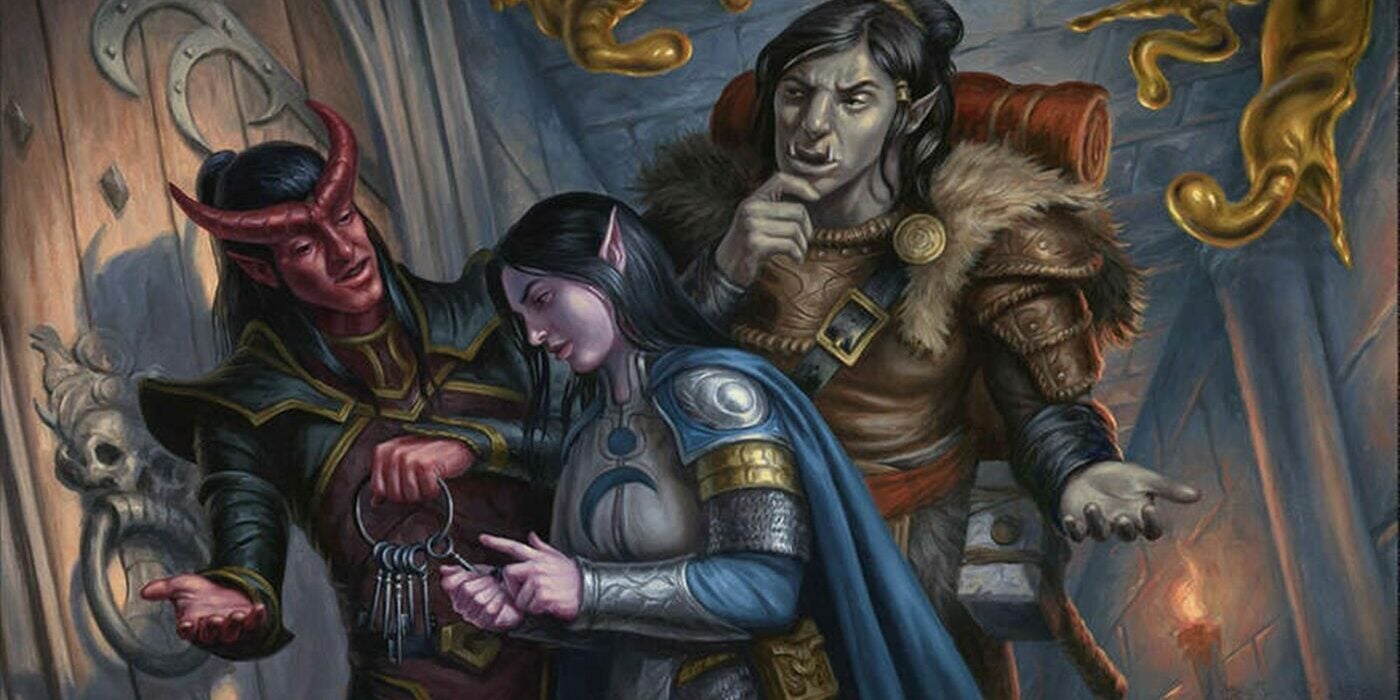
And that’s just a handful of examples. But it’s a neat principle to play around with. Now, any character has a chance to shine in a situation that isn’t tailored for them. And that means that the Barbarian might not check out when combat isn’t happening.
This principle isn’t just true for social interaction, either. You could use not-Dexterity in a chase. Or if players are trying to be stealthy in an exploration scene, you might use alternate abilities to represent players avoiding guard patrols with Intelligence or something. All that to say, there’s still more to dig into in this meaty new Dungeon Master’s Guide.
Now, to go figure out how to make social encounters centered entirely around Constitution.

